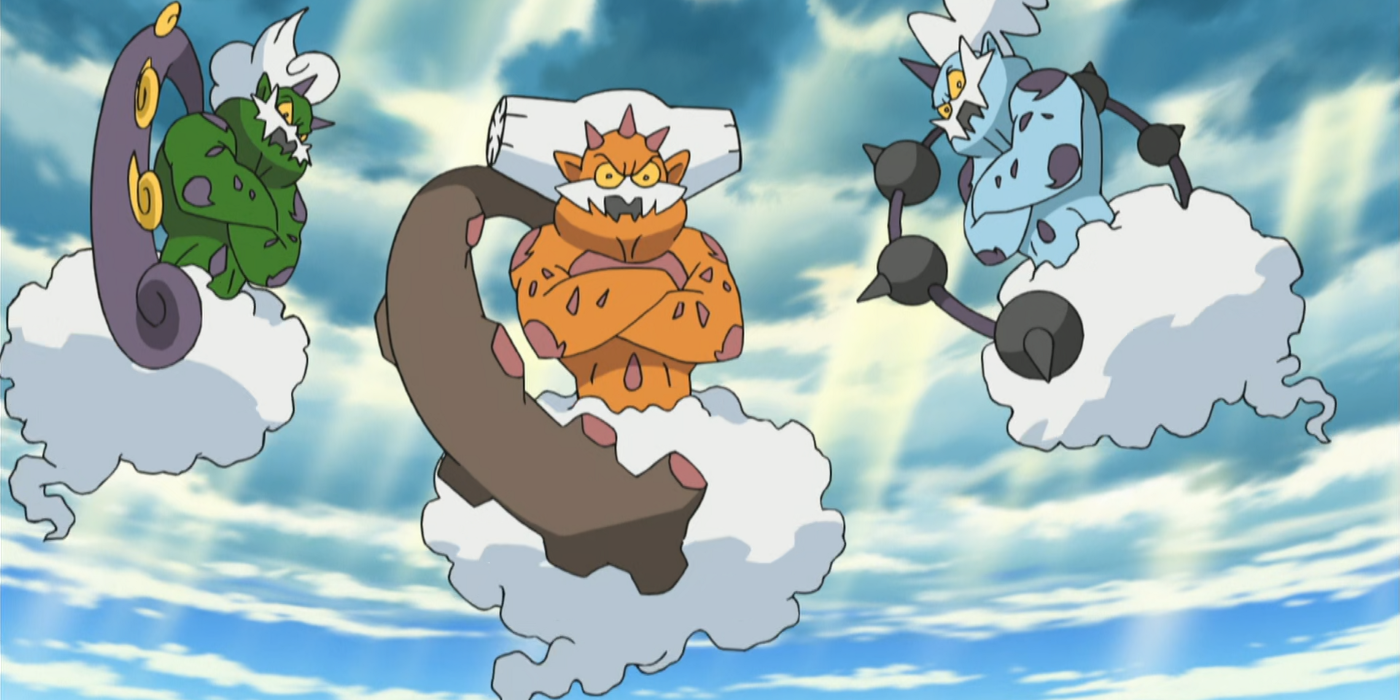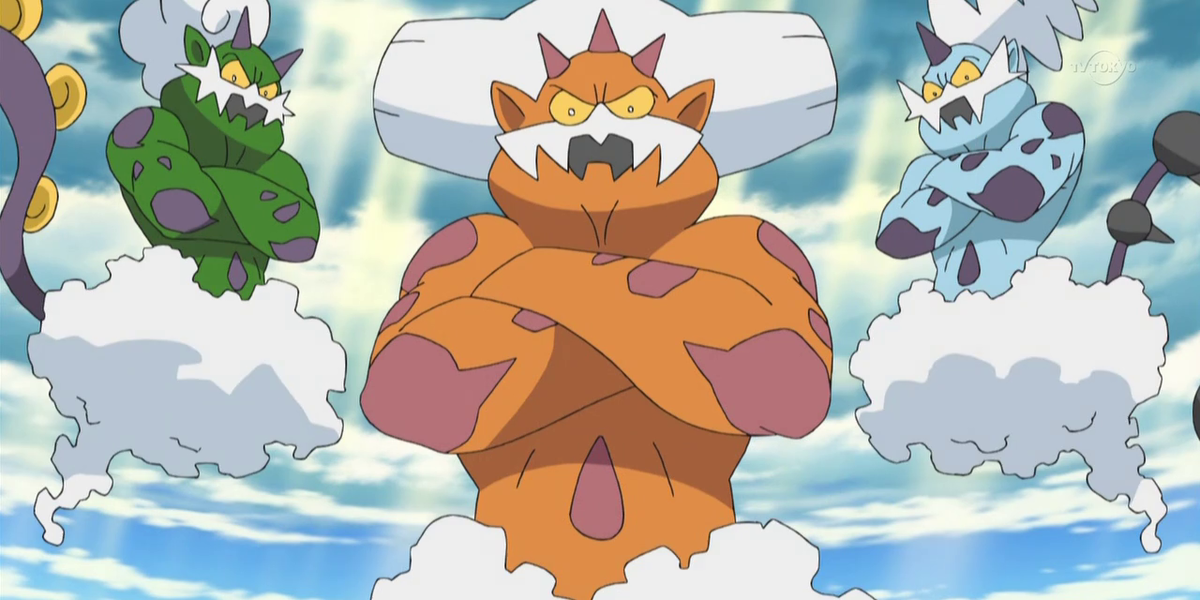Pokemon: Landorus Lore Explained | Game Rant

Pokemon isn't just a series of games about catching random monsters. Nintendo has created all kinds of deep lore, especially around the rarest and most important Pokemon in each region. One particular habit that Nintendo has is creating Legendary Pokemon in groups of three. Ever since Moltres, Zapdos, and Articuno, there have been powerful trios of Pokemon that balance each other out while also contributing majorly to the setting. Just about every region has at least one trio of this kind, whether it's the Regis from the Hoenn Region or the lake trio from the Sinnoh region. In the Unova region, there are the Forces of Nature, and at their head is Landorus.
The two Pokemon in the Forces of Nature trio aside from Landorus are Thundurus and Tornadus, each of which were version exclusives in Pokemon Black and White. The only way to catch Landorus in these games is to trade with a friend and bring Thundurus and Tornadus to the Abundant Shrine. Once there, Landorus will appear. It's no coincidence that Landorus only appears in the presence of the other members of its trio. Landorus stands at the head of the Forces of Nature and keeps the balance between the two of them. Life in the Unova region wouldn't be the same without Landorus' help.

Pokemon Black and White players might remember visiting the Abundant Shrine for the first time and being introduced to a group of children arguing in front of the shine. These kids shed lots of light on who Thundurus is and why he's so important. Legend has it that Thundurus and Tornadus were once wreaking havoc on the human world using their mastery over the wind and lightning. It was then that Landorus descended upon Thundurus and Tornadus and reigned them in, putting an end to their mischief. Ever since, Landorus has been known as the master of the Forces of Nature.
That's not the only contribution Landorus makes to the Unova region. Supposedly Landorus is a sort of patron of fertility and good harvest. Landorus' tail can combine the power of wind and lightning to store energy, which it can use to increase the fertility of the soil. People of the Unova region call Landorus the Guardian of the Fields because of this power to enrich the land. Landorus still plays an important role in keeping Thundurus and Tornadus in check, too, so it's important in more ways than one.

Longtime Pokemon fans probably remember that Nintendo frequently bases Pokemon regions and developers Pokemon themselves based on concepts from the real world. Legendary Pokemon in particular sometimes have real-world mythological parallels. Landorus and its companions count toward that. Landorus is based on Inari Okami, a kami from Shinto belief that's the patron of a great many things, including fertility and agriculture. This inspiration pairs well with Thundurus and Tornadus, who are based on another set of Shinto kami: Raijin and Fujin respectively. Knowing this Shinto inspiration helps explain why the Abundant Shrine where players and Landorus meet is designed in a Shinto style.
It's a little surprising that Nintendo opted for Shinto-inspired Legendary Pokemon in the Unova region, which is supposedly based on the United States. However, Landorus and its companions don't feel out of place whatsoever. Pokemon Black and White put a major emphasis on the traditions of the past and the future's potential. The Forces of Nature offer a good contrast to the many industrial cities that mark parts of Unova. Landorus wasn't a major focus of Black and White, so it's nice to see the Pokemon making a significant appearance in Pokemon GO. Landorus' lore is simple but compelling and remains one of many strong examples of Nintendo's ability to build and expand the Pokemon world.

Post a Comment